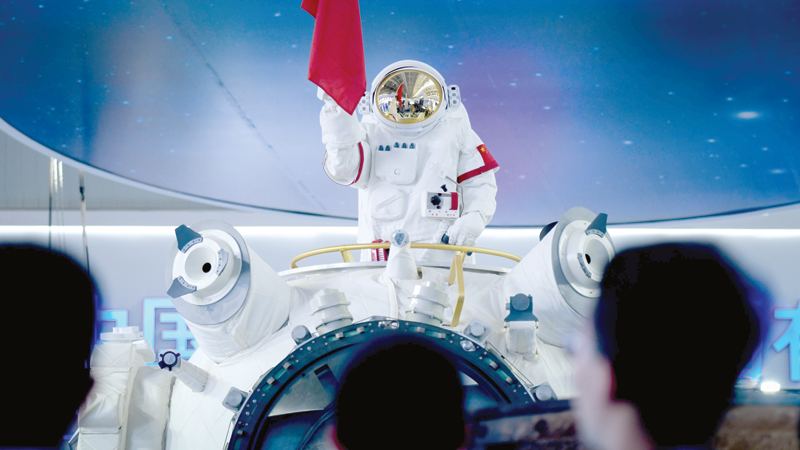

ZHUHAI: China unveiled on Tuesday a replica of its first permanently crewed space station, which would replace the international community’s orbiting laboratory and symbolises the country’s major ambitions beyond Earth.
The 17-metre core module was a star attraction at the biennial Airshow China in the southern coastal city of Zhuhai, the country’s main aerospace industry exhibition.
Outside, China’s J-10 fighter jet and J-20 stealth fighter wowed spectators as they zoomed across Zhuhai’s sky. Back inside, the country displayed its fleet of drones and other military hardware.
Crowds gathered around the cylindrical space station module representing the living and working quarters of the Tiangong — or “Heavenly Palace” — which will also have two other modules for scientific experiments and will be equipped with solar panels.
Three astronauts will be permanently stationed in the 60-tonne orbiting lab, which will enable the crew to conduct biological and microgravity research.
Assembly is expected to be completed around 2022 and the station would have a lifespan of around 10 years.
The International Space Station — a collaboration between the United States, Russia, Canada, Europe and Japan — has been in operation since 1998 but is due to be retired in 2024.
China will then have the only space station in orbit, though it will be much smaller than the ISS which weighs 400 tonnes and is as large as a football pitch.
The country announced in May that the lab would be open to “all countries” to conduct science experiments.
“There is no doubt that China will use its station in a similar way as the ISS partners are using their outpost: research, technology and as a stepping-stone for deep-space exploration,” said Chen Lan, analyst at GoTaikonauts.com, a website specialised in the Chinese space programme.
Research institutes, universities, and public and private companies have been invited to propose projects. Some 40 plans from 27 countries and regions have been received. — AFP
Oman Observer is now on the WhatsApp channel. Click here



